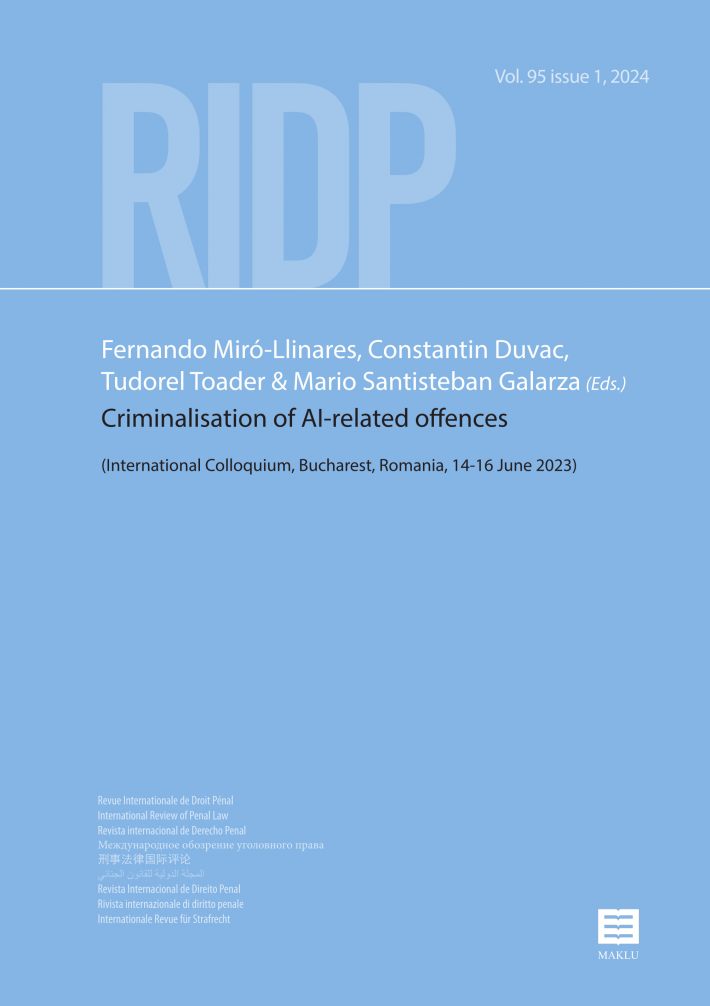dit werk kent de volgende uitvoeringen
verschijningsdatum12/07/2024

Artificial Intelligence is already widely used in many sectors of society. The advent of this technology, and the harms that it may create to interests worthy of protection by criminal law, questions whether the special part of criminal codes is suitable for addressing the challenges that this technology creates. Therefore, it is relevant to reflect on the necessity to amend the special part of the criminal code, integrating AI-related offences. This encompasses offences whose criminalisation responds to the alleged new needs of criminal law intervention related to the risks and harms arising from the development of AI systems. Indeed, AI harms and risks might demand new forms of criminalisation, and current offences might be amended to adequately respond to the new ways of affecting already protected interests. Additionally, the inclusion of new relevant interests related to AI could be considered.
This criminalisation process has already started in some states. Extra criminal regulation, which can have relevant implications on criminal law, has been enacted as well. Legislators cannot overlook the criminalisation techniques and grounds to legitimise criminal intervention. To that end, transversal and rich reflections are required to inform this legislative process.
This RIDP issue attempts to address these relevant questions, proving the insights of AIDP academics on the topic of the criminalisation of AI-related offences. It brings together contributions from national rapporteurs of various countries, who collaborated in the works of Section II for the upcoming AIDP XXIst International Congress of Penal Law 2024 on Artificial Intelligence and Criminal law. Furthermore, it gathers the work of some AIDP experts in the form of “special reports” that cover some particularly relevant topics regarding AI-related offences (AI and cybercrime, disinformation and deep fakes, AI and privacy and financial crimes).
Fernando Miró-Llinares is Professor of Criminal law and Criminology and Director of the Crimina Center for Crime prevention at University Miguel Hernández of Elche.
Constantin Duvac is Professor of Criminal law and Forensics at Bucharest University of Economic Studies and the president of the Romanian National Group of the AIDP.
Tudorel Toader is Professor of Criminal law at Alexandru Ioan Cuza University of Iasi and the vice-president of the Romanian National Group of the AIDP.
Mario Santisteban Galarza is Postdoctoral Researcher at the Crimina Center for Crime prevention at University Miguel Hernández of Elche.